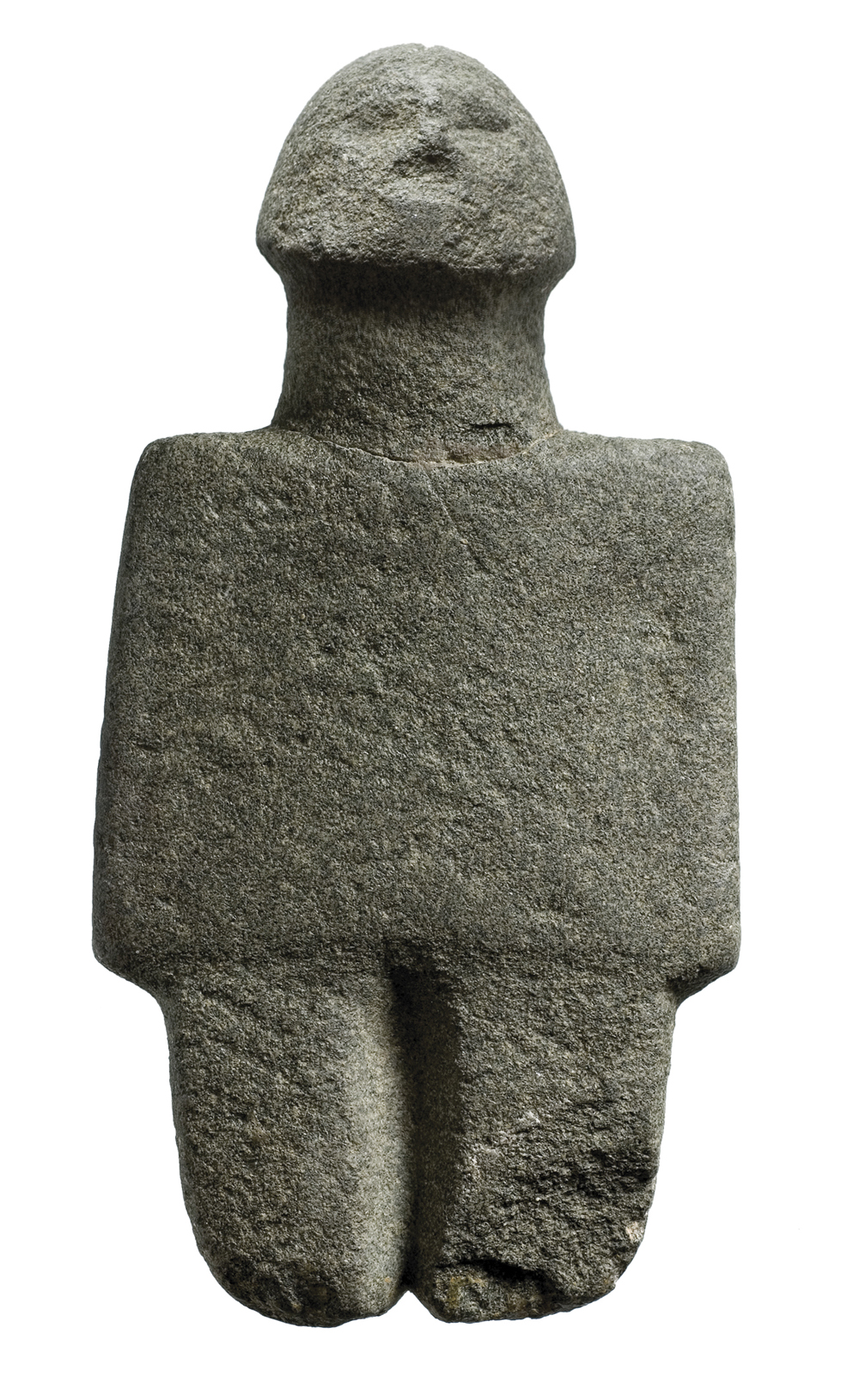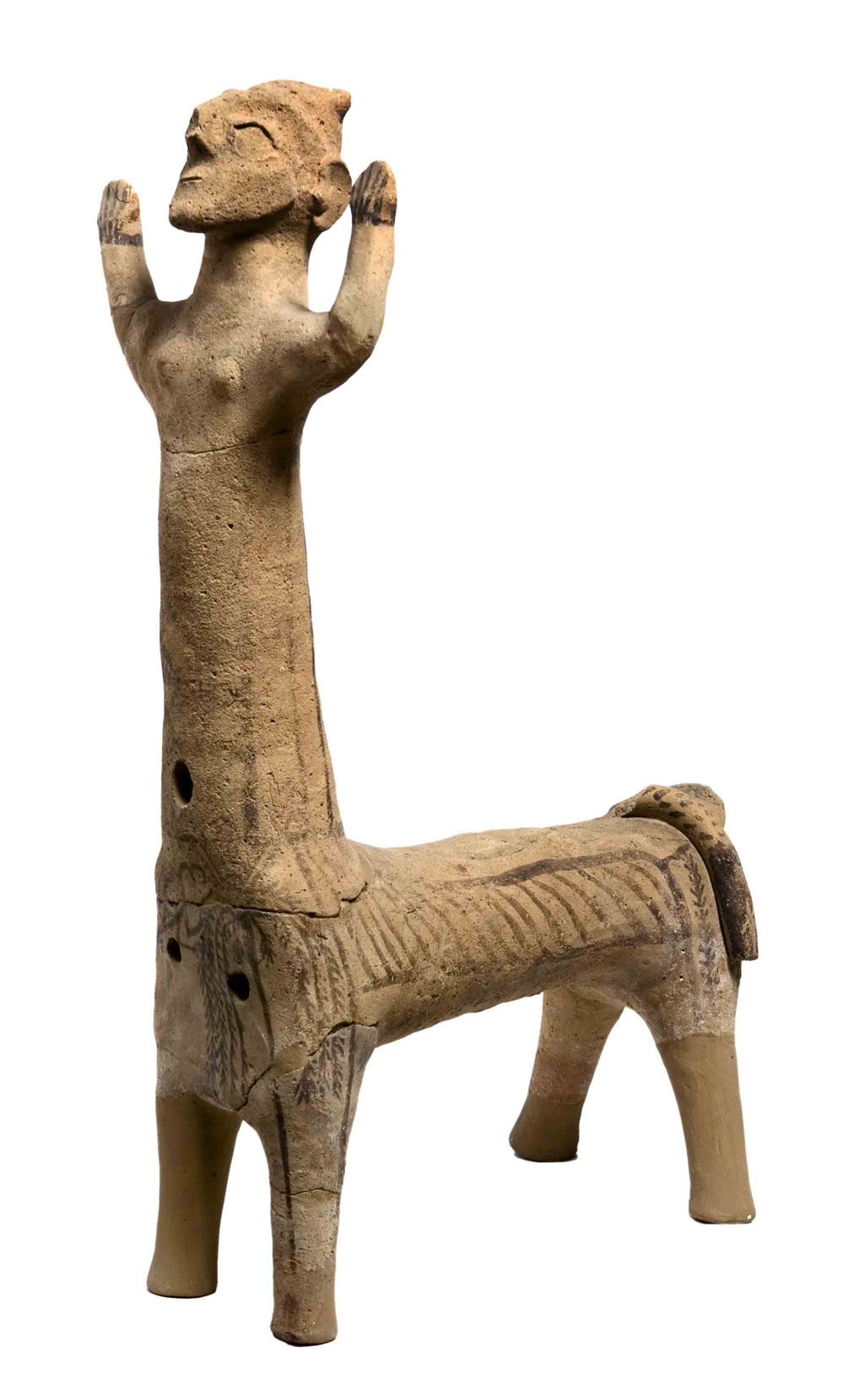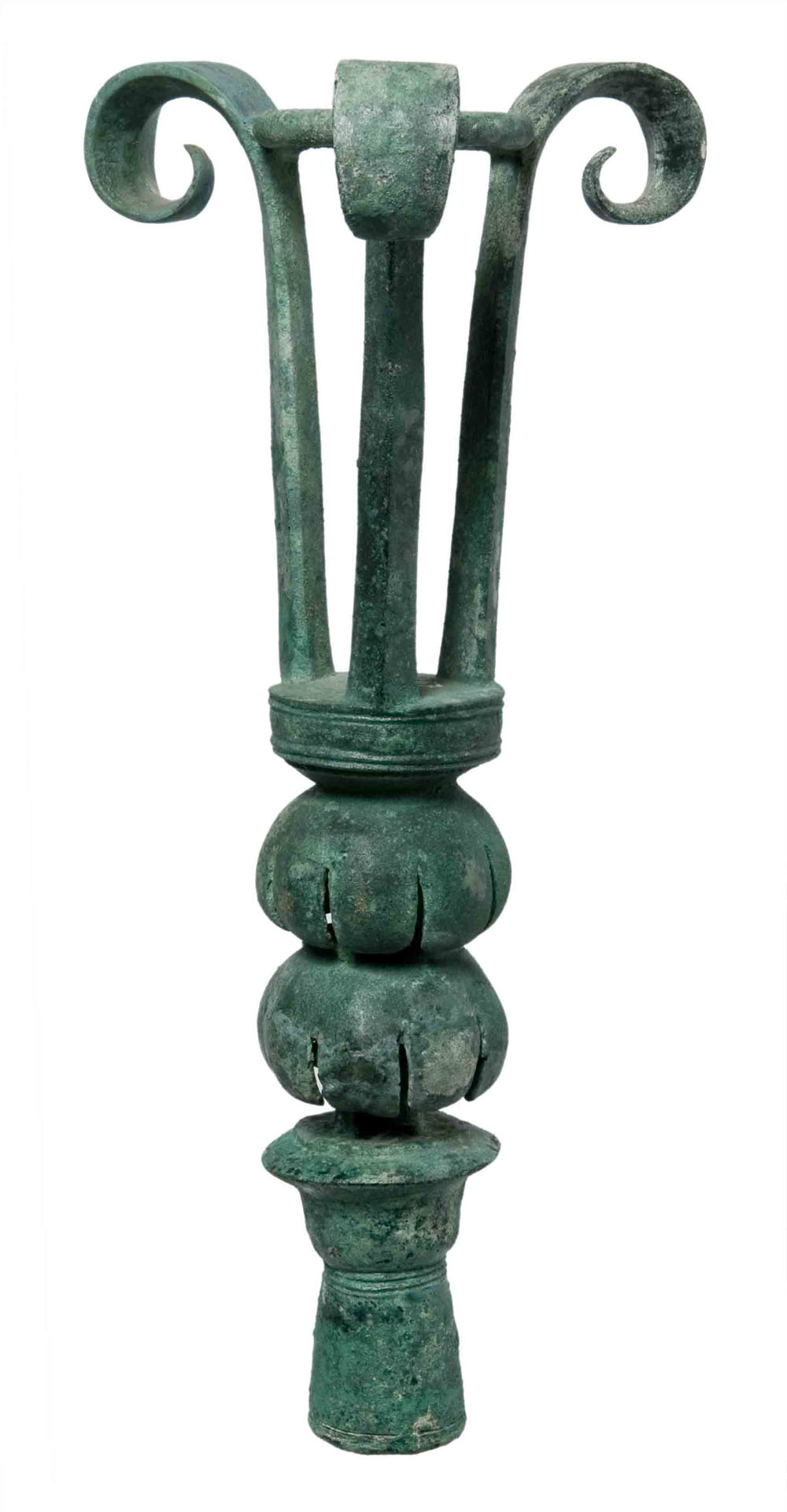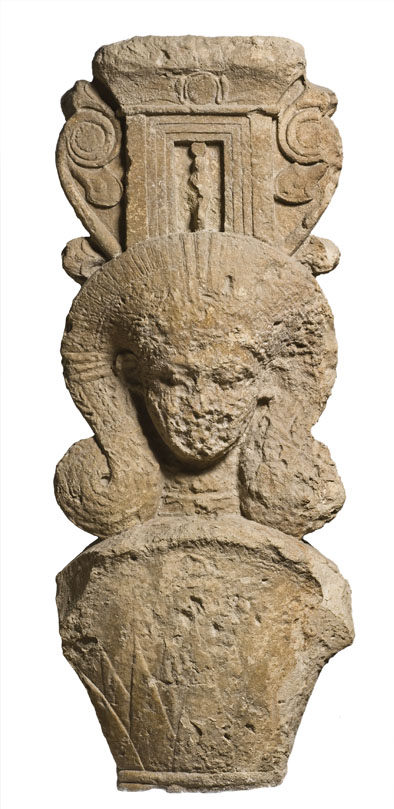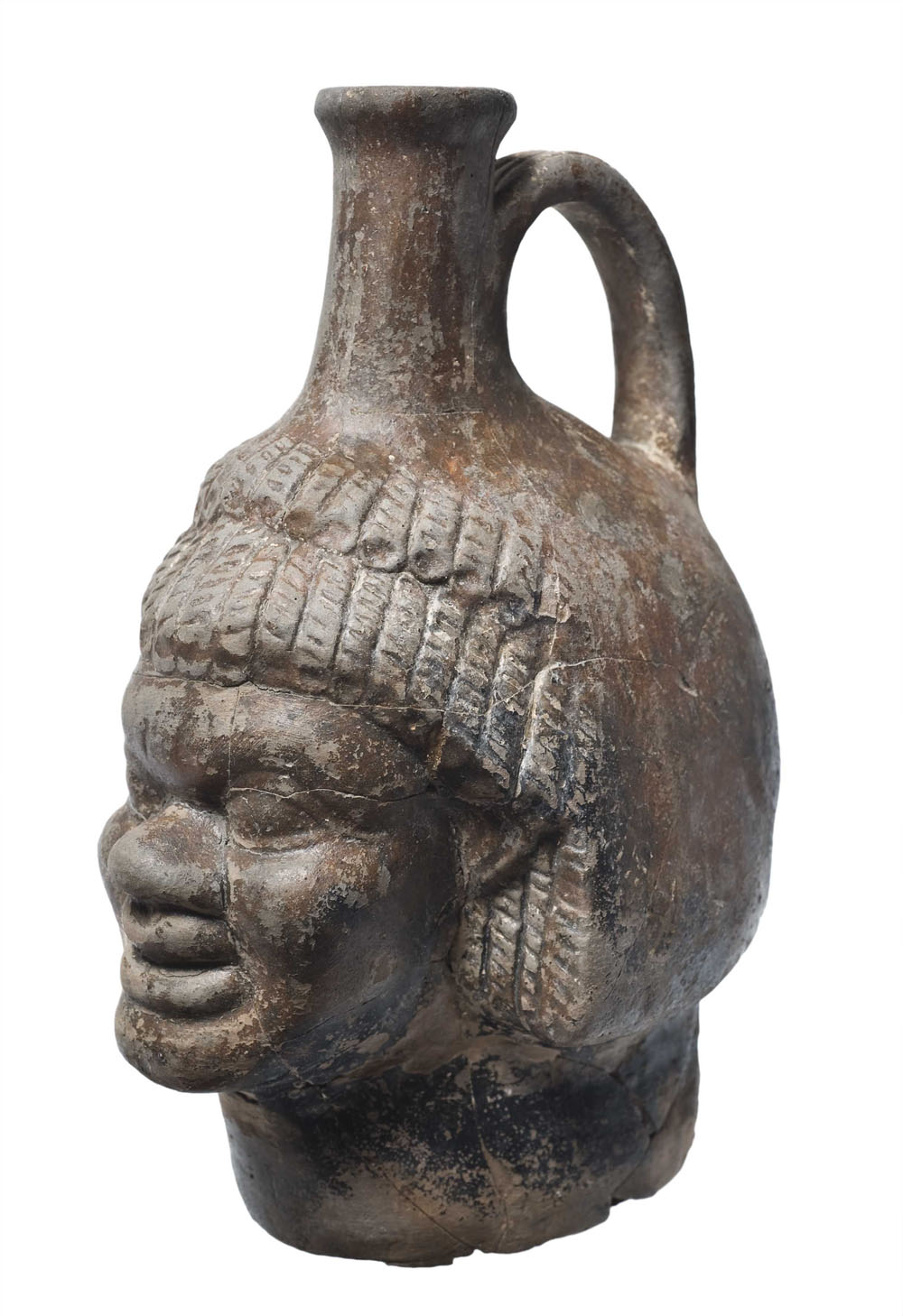Royal Museums of Art and History, Brussels
October 31, 2012 – March 10, 2013
Organisation: Department of Antiquities, Cyprus
The exhibition is organised within the framework of Cyprus' Presidency of the Council of the European Union.
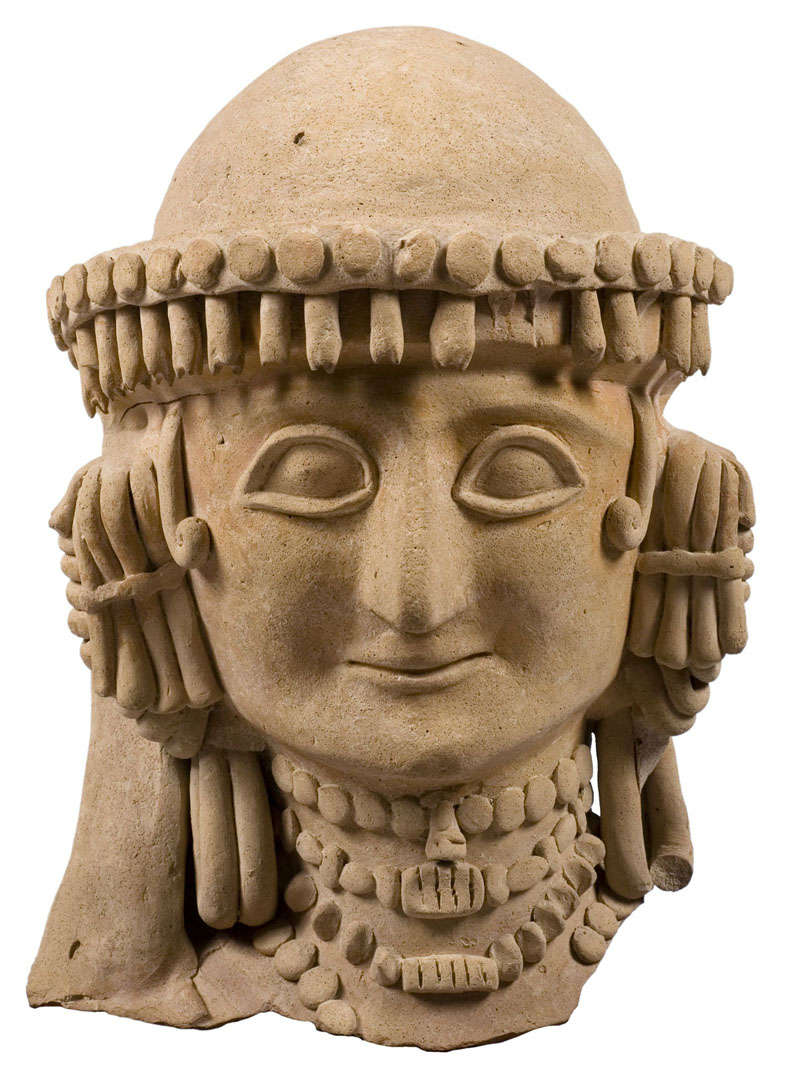
Cyprus is the third largest island in the Mediterranean after Sicily and Sardinia, a spacious place with fertile lands, a mild climate, good natural harbours, and rich mineral resources. Due to these favourable conditions, it attracted human populations from as early as the 10th millennium BC. Since then, it has been inhabited continuously, producing an exceptionally rich archaeological record, with considerable cultural achievements and evidence of interaction with neighbouring areas.
Cyprus, a meeting place
Cultural contact and exchange were of major importance for ancient Cyprus. Located at the crossroads of Europe, Asia and Africa, the island was always a meeting place for people and ideas coming across the sea. Influences from Greece, Anatolia, Egypt, and the Near East can be traced in almost every aspect of ancient Cypriot culture, from language and writing to art and architecture. Reception, however, was not passive. Elements from different cultural traditions were frequently mixed with local idioms to produce new hybrid forms, especially in the spheres of artistic and religious expression.
The exhibition concept
How did these influences arrive at the island? Was it only through direct human contact, trade, migration, diplomacy, and even war? What was the impact of other forms of interaction, e.g. diffusion of technological innovations, artistic exchange, and the development of common elite ideologies across regions? What meaning did foreign ideas acquire in their new contexts? And how important were these for the identities of local people?
These are some of the questions addressed in the exhibition “Ancient Cyprus: Cultures in Dialogue”, which will be presented at the Royal Museums of Art and History, Brussels, between October 31, 2012 and February 17, 2013. The exhibition is organized on the occasion of Cyprus’ Presidency of the Council of the European Union, 2012, and aims at presenting the wealth and diversity of ancient Cypriot culture to the European public.
As Cyprus was one of the most important places of cultural interaction in the ancient world, the exhibition seeks to explore this aspect in a more systematic way. Understanding how ancient societies communicated and how they managed to develop creative forms of cultural dialogue is crucial in this era of multiculturalism and globalization, when traditional cultural barriers are challenged and interaction among people from different cultural backgrounds increases.
Participating institutions
The exhibition features 291 objects from public museums in Cyprus, the Pierides – Laiki Bank Museum, the British Museum, the Ashmolean Museum at Oxford, the Royal Museums of Art and History in Brussels, the Royal Museum of Mariemont and the Museum of Louvain-la-Neuve.
Exhibition catalogue
The exhibition is complemented by fully illustrated catalogues in French, Dutch and English. The catalogues contain detailed descriptions of all exhibits and rich introductory texts by established authorities in Cypriot archaeology from Cyprus, Europe, America and Australia.
Organization
Department of Antiquities, Cyprus
Under the auspices of
Cyprus’ Presidency
of the Council of the European Union.
Duration
31 October 2012 – 10 March 2013
Venue
Royal Museums of Art and History
Musée du Cinquantenaire
Parc du Cinquantenaire 10
B-1000 Brussels
Belgium
Website
http://www.kmkg-mrah.be/
http://www.kmkg-mrah.be/expositions/ancient-cyprus
Note
The official languages of the exhibition are French and Dutch.
THEMATIC CATEGORIES:
1. The history of archaeology in Cyprus
2. The island
3. The sea
4. Society and People
5. The World of the Dead
6. The World of the Sacred
TIMELINE
Contributors
EXHIBITION CATALOGUE
